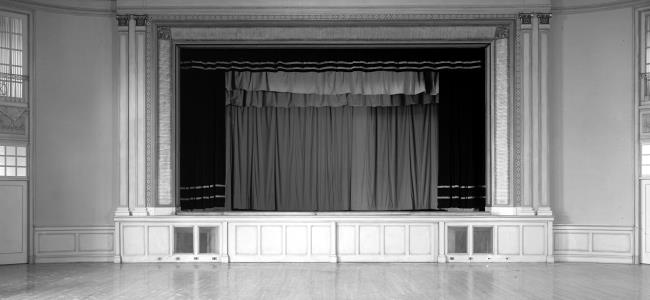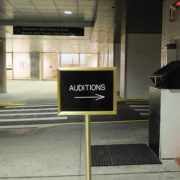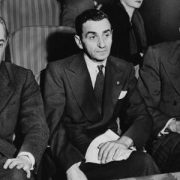London, unlike Los Angeles and New York City, is split equally into two categories of actors — stage and screen, whereas New York is more theatre focused and Los Angeles is film/TV focused. A question of “should I do both stage and screen acting” comes up more often than you would think, and the simple answer is: “if you want to do both, then go for both.”
You’re lucky for pursuing a career in London, because you don’t have to stress about carrying with you two different acting resumes — one for theatre agents, other one for anything to do with screen acting. Both of these go onto the same acting CV here in London, as both experiences are equally valuable. However, while the latter is true, acting for a stage play is not the same as acting for screen, and we as actors have already learned that.
Difference Between Stage and On-Camera Auditions
It’s not unusual for actors in London, or in the whole of Great Britain for that matter, to start off their career in theatre. Most of them do, especially when the big focus is placed on studying in best drama schools in UK. Therefore, let me talk a little about the difference between stage and on-camera auditions and how an actor can transition from one thing to another.
Acting for screen is subtle. This is the most famous one that every talent agent, casting director and acting teacher will tell you. Remember that camera will catch any nuance, any subtle move and emotion: the feeling of hope, glance in your eyes, your hurtful soul and suspicious look. All little details will be there, on the screen, captured in a beautiful way without any exaggeration.
While in theatre you have to remember to that people aren’t as close to you, therefore, you need to deliver your lines and emotion that could be read by the mezzanine. Any feeling you want the viewing to capture will not be there for everybody to see if you keep it subtle on the stage. So keep in mind how effortlessly the camera can reveal all those traits of yours; it will sometimes show even the things you don’t do! Be aware of the camera.
Keep your volume down. While the previous advice is famous among talent professionals, this one in particular is very popular among actors themselves. This is the first thing you’ll hear from an experienced stage performer who had an on-camera audition. Everybody usually start off a little bit too loud; they don’t even notice that themselves. It’s how schools trained them — the habit of strong enunciation and expression with the help of being loud.
The volume of your voice when acting for the camera should be dictated by the circumstances of the particular scene. If the situation doesn’t require for you to raise your voice, this means you should be talking in your normal, human-like, manner. Don’t leave your great enunciation skills, just the volume. Camera is more intimate, it doesn’t always require you to shout. Regular speaking pattern will make your performance more intimate.
Don’t forget to keep your personality. Just like we talked about the necessity of bringing yourself previously, the same thing should be considered once again in this transition. What sells the part is the actor and their personality. While your words have already been written for you, casting directors are looking for you and your personality to sell them.
If you’re auditioning for a TV show, or something that is currently in the works, writers will define your part; they will write or rewrite that part for you to make it stand out, to make it look strong and impressionable. The play has already been written, usually long time ago, and the characters are set in stone — we know what they are, and not always much room for playing around with new things. On screen, your unique personality is what interests the viewer.
Memorize your lines. Last but not least is to keep your lines in your head, partially. While it’s completely fine to read your lines off the page for a stage audition, for TV projects this doesn’t work so well. Casting directors want to sell you, not the part per se, therefore, they need to see you and not just hear your voice reading the lines.
It’s very difficult to see how good the actor is on camera when they keep their head buried in the script, or dragging the whole thing because they lost the next line. Go through your script enough times to know what the next line might be, however, don’t memorize it completely. Leave something out so that when your auditioning, some spontaneity would come out. And keep your sides in front of you at all times, just don’t look at them that often.





